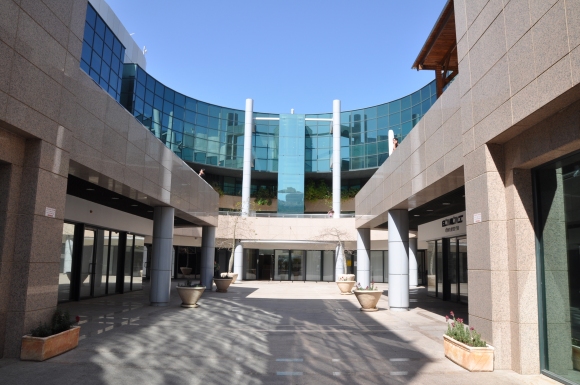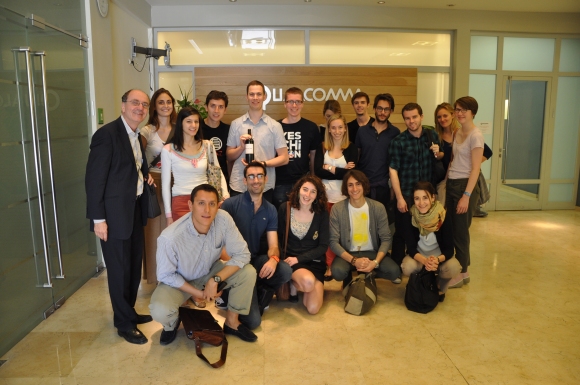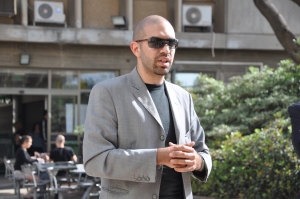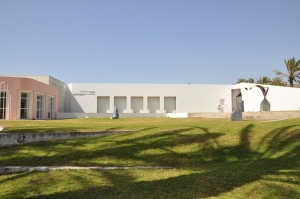A new busy day starts with the visit of Qualcomm, an American high-tech company. Its headquarters in Israel are located in the MATAM (international technology center) in Haifa. We had a 2 hours bus ride from Tel Aviv to join Haifa, which is located on a very beautiful place, very close to the sea. Nir Ofry, member of the Innovation Team, makes us a quick presentation of the company. Qualcomm is a global telecommunication corporation that designs, manufactures and markets digital wireless products and services. It is like Intel 25 years ago, as the world’s largest fables semiconductor company and first in wireless technology. They help developers to develop many applications and Nir showed us some of them like iOnRoad, an app which indicates the distance between you and the car in front of you. Very usefull but a little bit scary: it can prevent car accidents.
Qualcomm employs 22,000 people and tries very hard to maintain the entrepreneurship spirit. Why is that? Because technology companies cannot be late in any sectors. So Qualcomm developed Qualcomm Innovation Network (QIN), a system for promoting corporate entrepreneurship and innovation. To know more about the internal innovation process at Qualcomm, read the dedicated article on Israel Valley.
At least, Nir told us about his personal story. He had to go to the army when he was 18 and became responsible of a huge information system in Tsahal (the Israeli army). As his mission had to remain a secret, he couldn’t tell anyone about his activities, so he developed the ability to solve problems on his own.
In Israel, geniuses are detected at a young age (around 10) at school, and they are then directed to special units in the army to develop their high potential.






